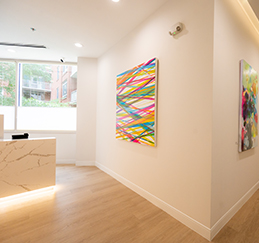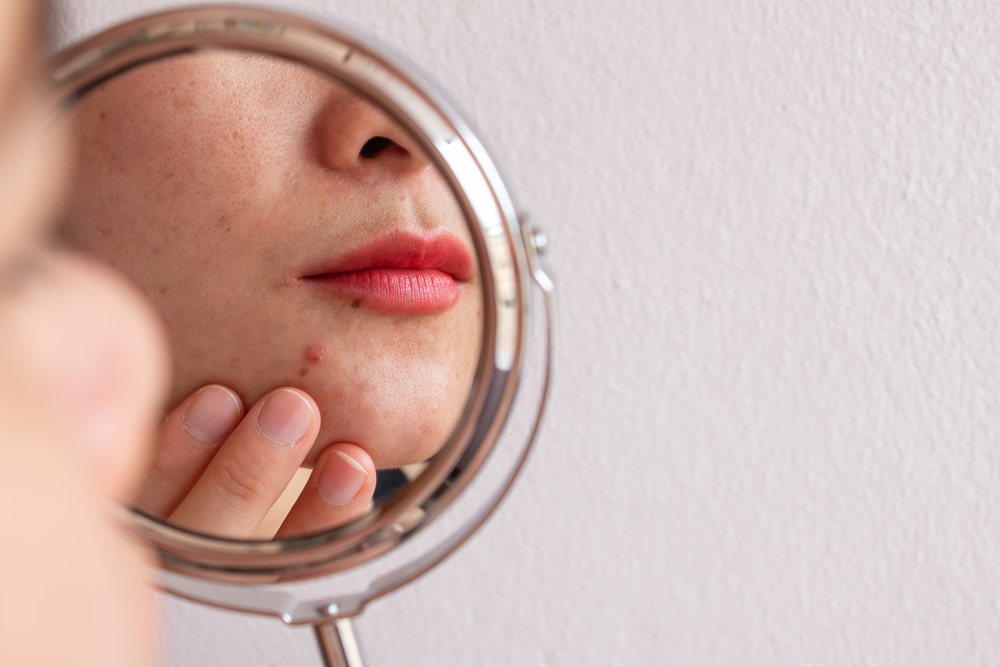If you’re someone who suffers from acne, you’re probably all too familiar with the frustration and embarrassment that breakouts can cause. And if you’re someone who experiences a worsening of your acne during your menstrual period, you may be wondering why this happens and what you can do about it. In this article, we’ll explore the reasons behind period-related acne and provide some tips for managing and reducing breakouts. We’ll also discuss the importance of seeking professional help from a dermatologist if your acne persists despite your best efforts to treat it. So read on to learn more about why you may be breaking out on your period and what you can do to get clearer, healthier skin.
How to Tell If A Breakout is Related to Your Period
To understand the cause of period-related (hormonal) acne, it’s important to first differentiate it from routine acne. The best way to determine the cause of your breakouts is by examining their timing and positioning. As you near the start of your menstrual cycle or throughout, acne often appears due to hormones and is often found around the chin or jawline. These are both clues that the breakouts may be hormone-related.
What Causes Breakouts On Your Period?
As your hormones fluctuate prior to and during menstruation, it can cause some regular side effects such as irritability, breast tenderness, and varying bowel movements. However, unlike these other symptoms, period-related acne doesn’t always leave once your period starts. This is because the hormone fluctuations that cause acne may continue even after your period has begun.
How to Treat Period-Related Acne
So what can you do to improve deep, painful breakouts that are related to your period? Here are a few suggestions:
- Use a warm compress on the affected cystic lesions a few times per day. This can help to reduce inflammation and pain.
- Make sure not to pick at acne lesions as this can lead to permanent scarring
- Try using an OTC benzoyl peroxide topical product to kill bacteria and minimize inflammation that may be contributing to the breakouts.
- Consider changing your birth control method (discuss with your OB/GYN) if your acne appears chronic, hormonally-related, and does not respond to classic acne treatments
A board-certified dermatologist can also prescribe acne controlling medications, several of which can target hormonal acne. Treatment options include:
-
- Topical retinoids
- Topical antibiotics
- Topical anti-inflammatory meds (ex. Dapsone, azaleic acid, benzoyl peroxide)
- Oral antibiotics
- Oral spironolactone
- Oral isotretinoin
In addition to these steps, it’s important to maintain a consistent skincare routine and use non-comedogenic products to help prevent breakouts outside of your period. Other treatment options for mild to severe acne, like AviClear, are available at our office. If you find yourself unable to control your hormonal acne, it is best to schedule an appointment with a dermatologist who can evaluate your skin and make recommendations how to best address your issue.
Schedule an Appointment
While period-related acne can be frustrating, it is a common and treatable condition. By taking steps to manage your acne and understanding the root cause, you can help to reduce breakouts and achieve clearer, healthier skin.
If you’re struggling with persistent or severe period-related acne and have tried over-the-counter treatments without success, it may be time to consult a dermatologist. Arlington Dermatology in Arlington, Virginia is a highly respected dermatology practice that can provide you with the expert care and treatment you need to manage your acne. To meet with our team and learn more about your treatment options, schedule an appointment online or fill out our online contact form.



